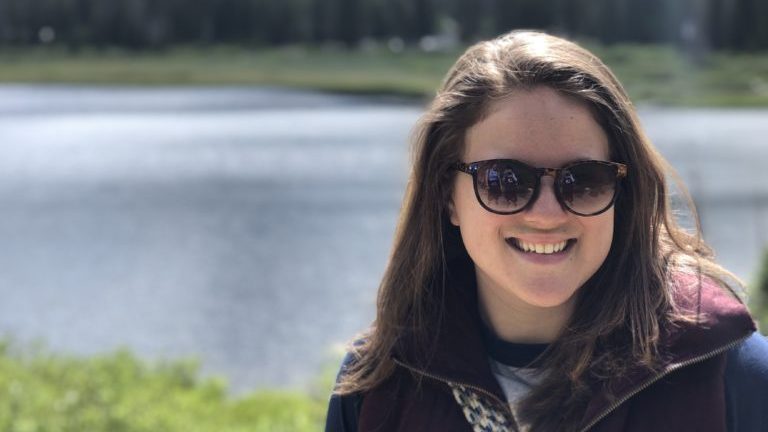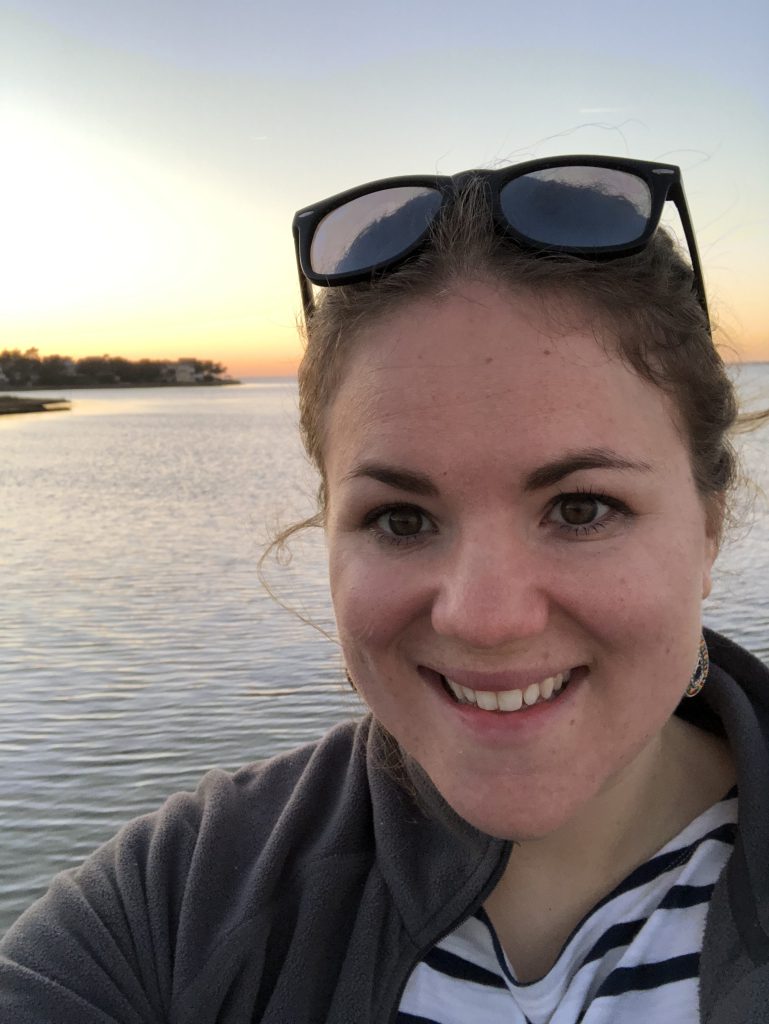Researcher Spotlight – Danielle Lawson

Spring 2018 Global Change Fellow
PhD Student, Department of Parks, Recreation, and Tourism Management
Advisor: Dr. Kathryn Stevenson

Every year the Southeast Climate Science Center funds a multi-disciplinary cohort of Global Change Fellows representing colleges across NC State University. Here are some highlights about Spring 2018 Fellow, Danielle Lawson, and the applied research she’s conducting.
What do you study?
I study how we can leverage the unique environmental views of children to influence the adults in their lives. Specifically, right now I am experimentally testing a middle school wildlife-based, climate change curriculum that aims to increase the climate literacy of both the students and the adults in their lives.
What (or who) influenced you to go into this field of study?
My high school AP Environmental Studies teacher inspired me to enter the environmental field and hopefully make an influence in environmental policy one day. I realized throughout my undergraduate degree that I wanted to influence policy through educating others about the environment. My experiences during my Masters led me to take an AmeriCorps service term, and in turn, I was led to this Ph.D. position in the NCSU EE Lab.
What results are you finding?
That younger generations, particularly in the K-12 age range, are agents of change if we give them the chance to be. So far, we have found that children’s perceptions of climate change are independent of their parent’s perceptions. Parents however, do play a role in a child’s likelihood to behave in a “climate-friendly” way – the amount of family discussion on climate change (both positive and negative) and whether parents are engaging in the behaviors themselves were the biggest predictors. Soon, we will be able to test whether children can influence their parent’s climate literacy.
Who will benefit from your research?
Anyone who interfaces with people and is affected by climate change. This would be a new communication tactic that everyone can use (hopefully).
How can your research be used to inform management decisions?
While my research won’t inform management decisions in terms of how to manage a resource, it can be used to inform how to communicate management decisions to the general public in a more effective manner.
What do you think is the most pressing issue related to global change?
The inclusion of all people in the conversation of global change. Underserved, diverse, young, old, and more all need to be included to ensure that we can approach mitigation in a more effective manner.
How do you expect the SE CSC Global Change Fellows Program to impact you and your work?
This program allows me to connect with researchers and practitioners from multiple academic institutions and governmental organizations that I would not typically have the opportunity to interact with otherwise. In my opinion, the best approach to large problems like global change, is through multiple perspectives and disciplines. This program allows me to expand my network, and in turn will make me a better researcher.
How would you describe your research to a 3rd grader?
My research tries to understand how kids can influence their parent’s opinion of climate change. This will help us teach both adults and children about how we can make our planet more environmentally friendly.
What is your dream job?
To work with underserved communities to bring them into the climate mitigation conversation. I could see myself potentially in academia or government.
- Categories: